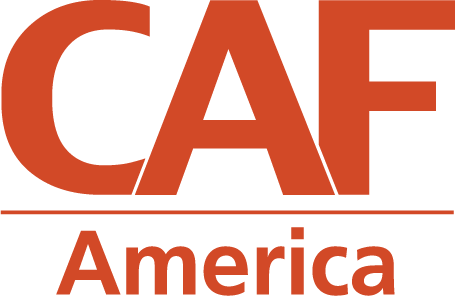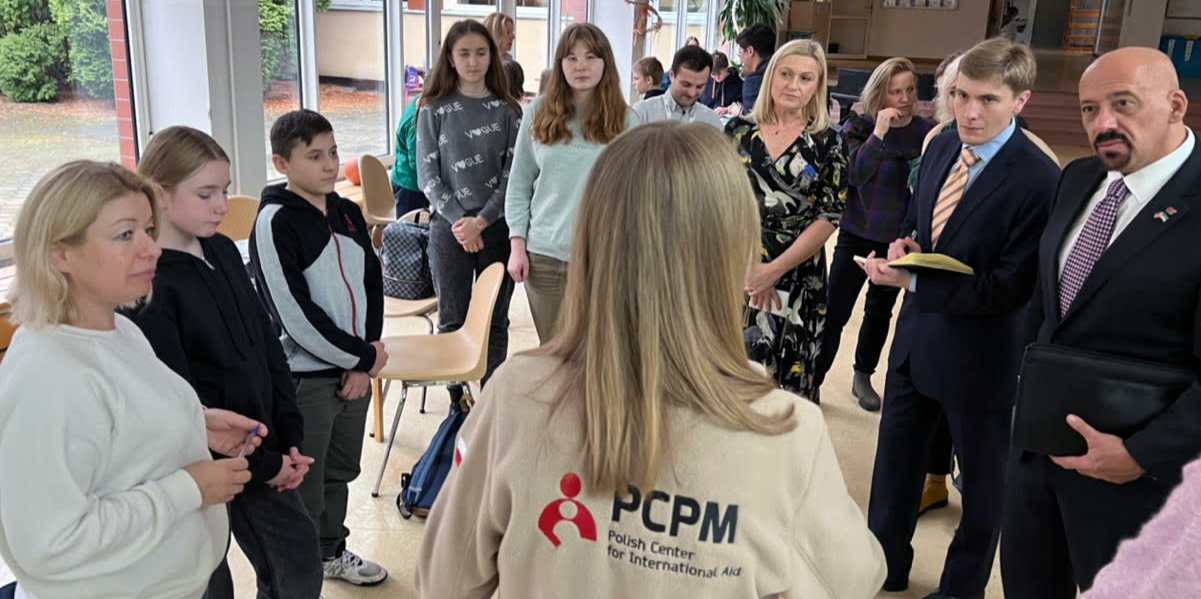Russia continues to target key Ukrainian infrastructure, leading to electricity outages, supply chain disruptions, and increased challenges for global civil society to provide humanitarian aid. It is expected that a second wave of up to 750,000 more Ukrainian refugees may cross the border into Poland alone over the next three months. Without access to electricity and heat, it is expected that many face freezing temperatures, either in their homes or while fleeing the country. Our charity partners anticipate that additional funding from international partners will be essential to providing refugee retrieval and cross-border transport, medical supplies, and other humanitarian aid services this winter.
A crucial part of delivering help to the places that need it most is listening directly to the charities doing this important work. In mid-November, the CAF America team traveled to Warsaw, Poland and met with the Polish Center for International Aid (PCPM). We visited a variety of program facilities, where PCPM shared a comprehensive overview of their humanitarian aid programs, including reporting on the impact our donors have had on their program funding.
Our first visit was to a primary school, where we sat down with key stakeholders, including PCPM founder, Wotjek Wilk; the Head of Education Department of the City of Warsaw, Joanna Gospodarczyk; the Deputy Mayor of the Mokotów Warsaw borough, Krzysztof Skolimowski; and a handful of school teachers. They painted an evocative picture of the current state of education in Poland, sharing that there are an estimated 420,000 school-aged Ukrainian children across the country. Of that amount, 17,000 are based in the Warsaw area, with 2,500 children located in the specific district we visited. At this primary school, PCPM helped integrate fifty Ukrainian refugee children, providing educational supplies such as laptops, audiobooks, and other educational tools.
PCPM has also employed three hundred Ukrainian teachers in the Warsaw school system, which has been mainly supported by donor funding. This program has had a two-fold benefit for Warsaw: firstly, the city has been experiencing a severe teacher shortage, and has depended on organizations in the civil sector to help fill the gap; and secondly, the program provides gainful employment for Ukrainian refugee women. We spoke to one of these teachers during our visit—one of her students, a young boy from Kherson, expressed that he enjoyed his new school, but simply wanted to go home [to Ukraine] and didn’t know when it would be safe to return. For refugee children, the needs addressed by PCPM go beyond education; teachers must also support their students emotionally.
Educational programming is just one aspect of PCPM’s work. CAF America also visited PCPM’s Warsaw Family Center, a shelter for over four hundred refugees which was converted from an unused office building. While space for housing is very limited in Poland, the shift to remote work has meant that former offices can be adapted to provide temporary shelter for refugees. CAF America concluded our site visits with a stop at a Ukrainian pre-K education center in downtown Warsaw, where young children receive educational programming from Ukrainian teachers that helps them prepare for primary school and reach developmental milestones. One teacher CAF America met at the Ukrainian School informed the team that her daughter was one of her students.
Dr. Wilk emphasized that the funding they have received from the international community has been crucial to supporting their programs; without it, these programs would not have been fully funded, leading to many Ukrainians being left behind. However, he is concerned that the influx of new refugees will put further stress on an already strained humanitarian relief system. Specifically, they need further support for medical supplies and PCPM encourages donors to look at directing their funding there.
This is just one brief snapshot of the powerful work funded by CAF America donors. Notably, what we consistently heard from PCPM and our other partners is that the war is far from over, and more philanthropic support will be needed, especially during the upcoming winter.
CAF America remains committed to reassuring donors that their contributions will be handled in a way that emphasizes regulatory compliance, mitigates risk and, therefore, protects donors’ reputations. Through the contributions of our donors, these organizations can fund their integral programs, ensuring that Ukrainians continue to receive the vital support they need.
To hear more about PCPM’s work and the work of other response organizations, please listen to our new podcast, Humanitarian Crisis for Ukrainians: What to Expect This Winter.
For a high-level overview of the trip and information about the other cities we visited, you can view our press release, which goes into greater detail.

